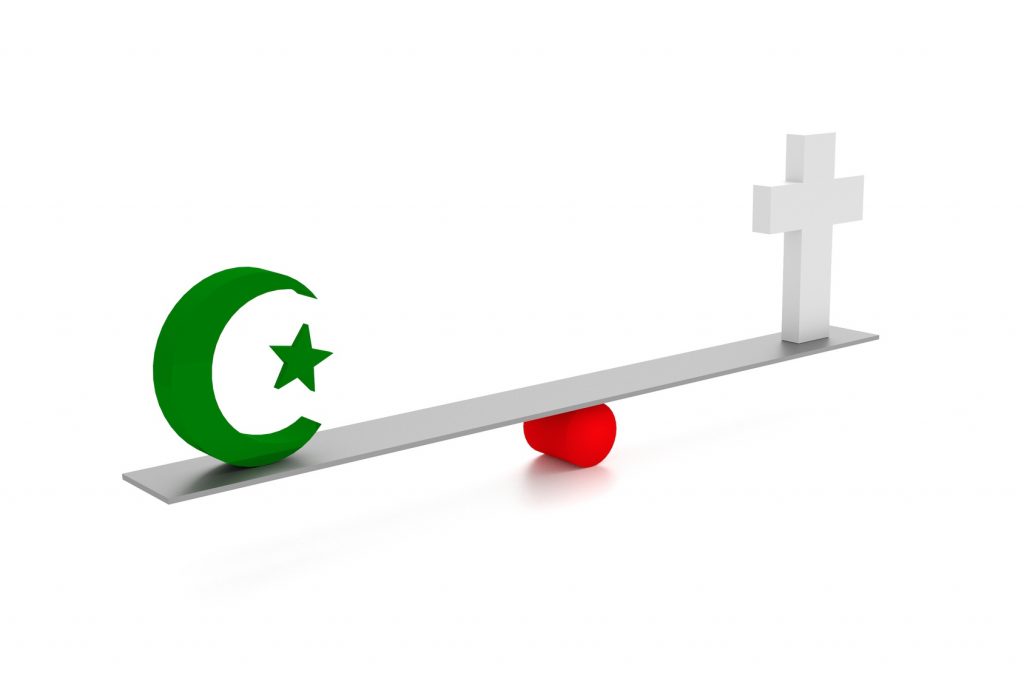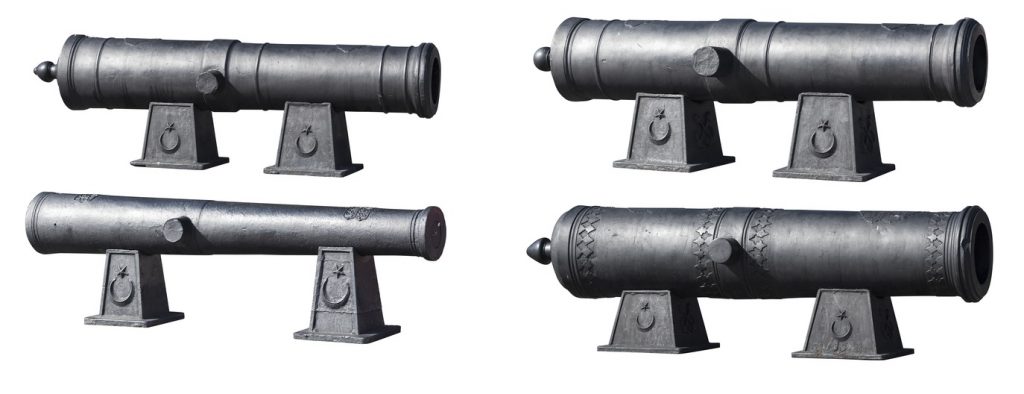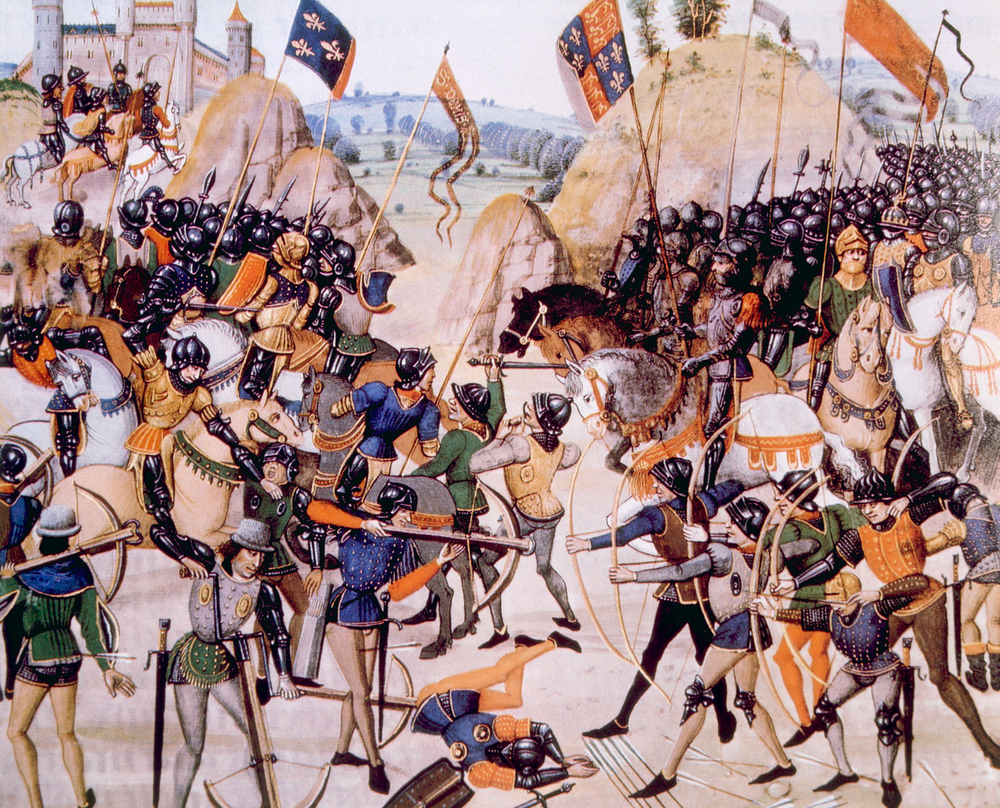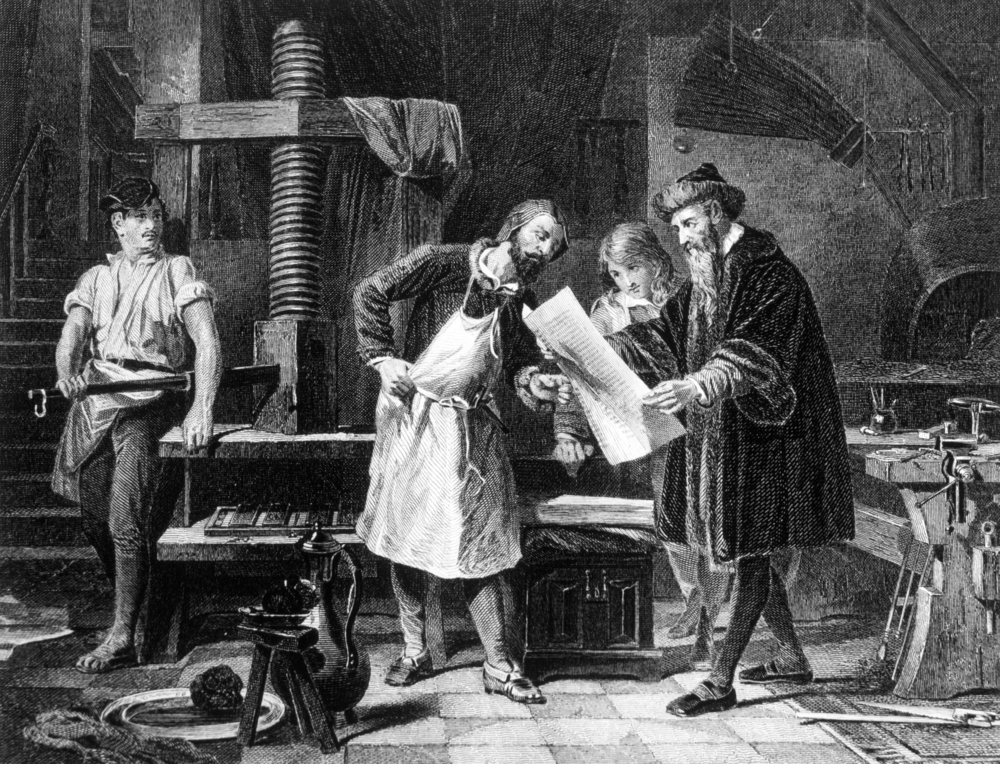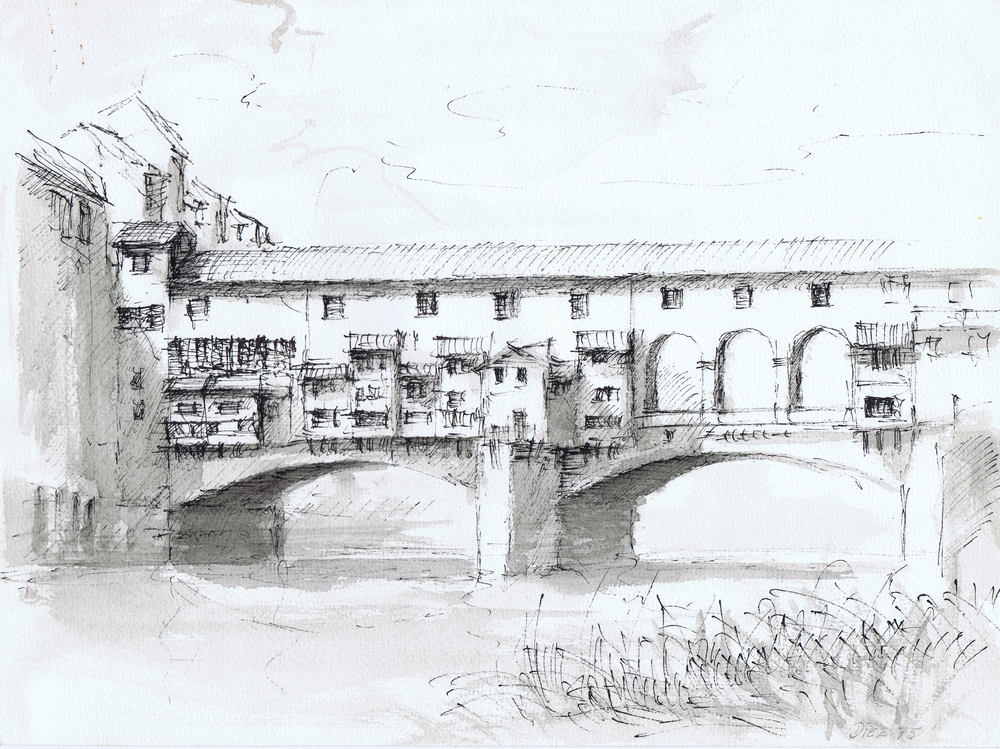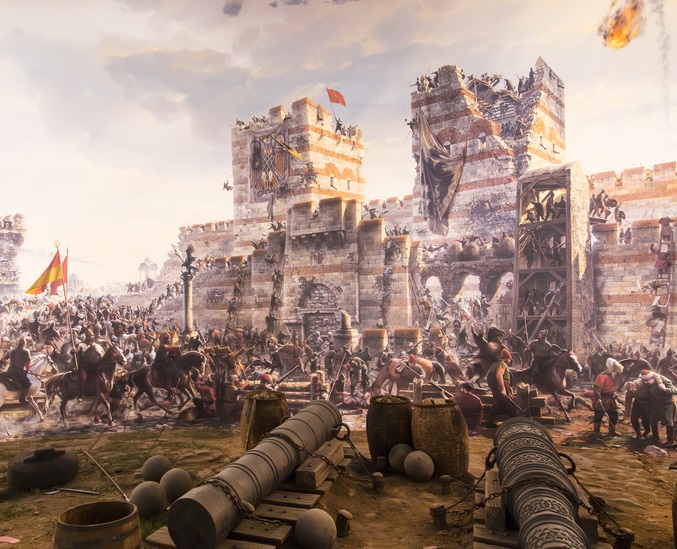
1430 AD to 1470 AD, Psalm 119: The Fall of Constantinople
This site was first built in French (see www.147thgeneration.net). The English translation was mainly done using « google translation ». We have tried to correct the result of this translation to avoid interpretation errors. However, it is likely that there are unsatisfactory translations, do not hesitate to communicate them to us for correction.
(for that click on this paragraph)
Summary
This generation of the 1430s, 1440, 1450s and 1460s.
This generation is special because it lasts 40 years, which is the equivalent of 2 classic generations. It is therefore that of the years 1430 to 1470; i.e. 2 half-generations of 20 years, the first from 1430 to 1450 and the second from 1450 to 1470.
This particular duration is justified by the events of this period (1430 to 1470) and by the structure of the psalm associated with this generation. According to our count, this generation is generation 119 associated with Psalm 119. It is in this Psalm 119 that we therefore find an illustration of the facts of this (double) generation.
To better understand the key role of this generation, independently of the associated historical facts, it is necessary to refer to the Pentateuch, and in particular to the 3 fasts of Moses.
As regards the historical facts of this double generation: for 8 centuries, that is to say 40 generations, a balance in the medieval world between Christians and Muslims has enabled the Jews to subsist, in particular on Spanish soil. This balance is coming to an end.
In the midst of this double-generation, the history of the world is at a definite turning point. May 29, 1453, date of the fall of Constantinople, traditionally marks the end of the Middle Ages. The city falls into the hands of the Ottomans, Greece becomes Turkish, Hagia Sophia becomes a mosque, and the Eastern Roman Empire disappears.
At the same time, the beginnings of the catastrophe of the twentieth century also appear at this middle date of the double-generation. In 1452. On March 19, 1452, Frederick III of Habsburg was the last king of the Romans to receive his imperial crown from the Pope. This presence of an imperator in Rome, a year before the fall of Constantinople, already signals changes in German history.
The central date of this psalm is significant for the Jewish people. Before that date, he was subjected to numerous harassments and even massacres, but without ever having a real desire on the part of the authorities to destroy him. After this date, the Jewish people will be confronted with powers, religious or political, which will seek their extermination.
The Muslim armies, under different banners, have not ceased since the birth of Islam to want to conquer the Byzantine Empire, failing for long centuries. In this generation, they succeed. The main reason for the success is the evolution of weaponry, new guns developed by German engineers. Turkey’s new weapon is just the prelude to new weapons that will vastly change wars for generations to come.
The middle period of this generation was also marked in 1453 by the official end of the Hundred Years War which resulted in the birth of the two nation states: France and England. Nations that will greatly influence world history for the next few centuries. The break-up of the Burgundian principality allowed the consolidation of the French kingdom and the birth of the Netherlands as a nation. The fall of Constantinople also allows Russia to emancipate itself from religious tutelage and become one of the emerging nations of this century. It is indeed the Europe of nations that emerge in the midst of this generation.
The middle of this generation also saw a new balance appear in Italy, through the signing of the “lega italica” in 1454. This fragile peace allowed the Italian states to return to modernity by developing the Renaissance, mainly in Florence, as much in the arts than in architecture, as well as in politics and humanism. The benefits of this revival will soon be exported, in particular to France, when the latter will undertake at the end of the century its actions of conquest in Italy. The first books (around 1455) come from the first printing press developed by Gutenberg. This invention will be decisive in the propagation of culture and science in the decades to come and will strongly accompany the Renaissance movement.
In Spain, the worst is brewing, with the first signs in Toledo in 1449 where riots target Jews and conversos. At the same time, Jewish communities are rebuilding themselves. Between 1419 and 1422, the books and synagogues that had been confiscated were returned to them. In 1432, in Valladolid, a royal city, the leaders of the communities of Castile promulgated various decrees aimed at restoring the communities destroyed during the riots of 1391. The first decisions concerned education and aimed at rebuilding institutions in this domain. Many yeshivot were established in towns and villages in Spain, these institutions continued until the expulsion from Spain in 1492.
The Jews of Spain are redefining themselves around the Mosaic law. This refocusing which has already enabled the Jews to cross the centuries in exile will be the essential reason for survival in the generations to come where the danger of disappearance will never be so great. In particular, the Jews who will take the road of a new exile from 1492 will come to seed durably European and Mediterranean Judaism allowing it to last until their return to Zion.
Talk
The psalm of this generation
Psalm 119 associated with this generation is special, it has as many paragraphs of eight verses as there are letters of the Hebrew alphabet. And this in the established order of the Hebrew alphabet (which contains only consonants or the like).
The eight verses of each of the paragraphs thus defined begin with the letter associated with that paragraph. This peculiarity means that this psalm is often used to reconstruct the names of the deceased that we want to honor (we reconstruct the name from each letter mentioned by reading the corresponding paragraph).
We will see that in fact this psalm also has a primordial importance in the succession of psalms and in particular in the final changeover between antiquity / middle ages and modern times.
This psalm is exceptional in its length, but as we will also see in the duration of the generation it represents. Indeed for all other psalms, the associated generation has a duration of twenty years.
For the present psalm, the generation has a duration of forty years, which is double that of a normal generation. In fact this psalm is associated with two half-generations of twenty years, the first from 1430 to 1450, the second from 1450 to 1470.
Psalm 119 associated with this double generation is composed of 2 times 88 verses, 88 verses for the first half-generation 1430-1450 (1453) and 88 verses for the second half-generation 1450 (1453) – 1470.
The fasts of Moses
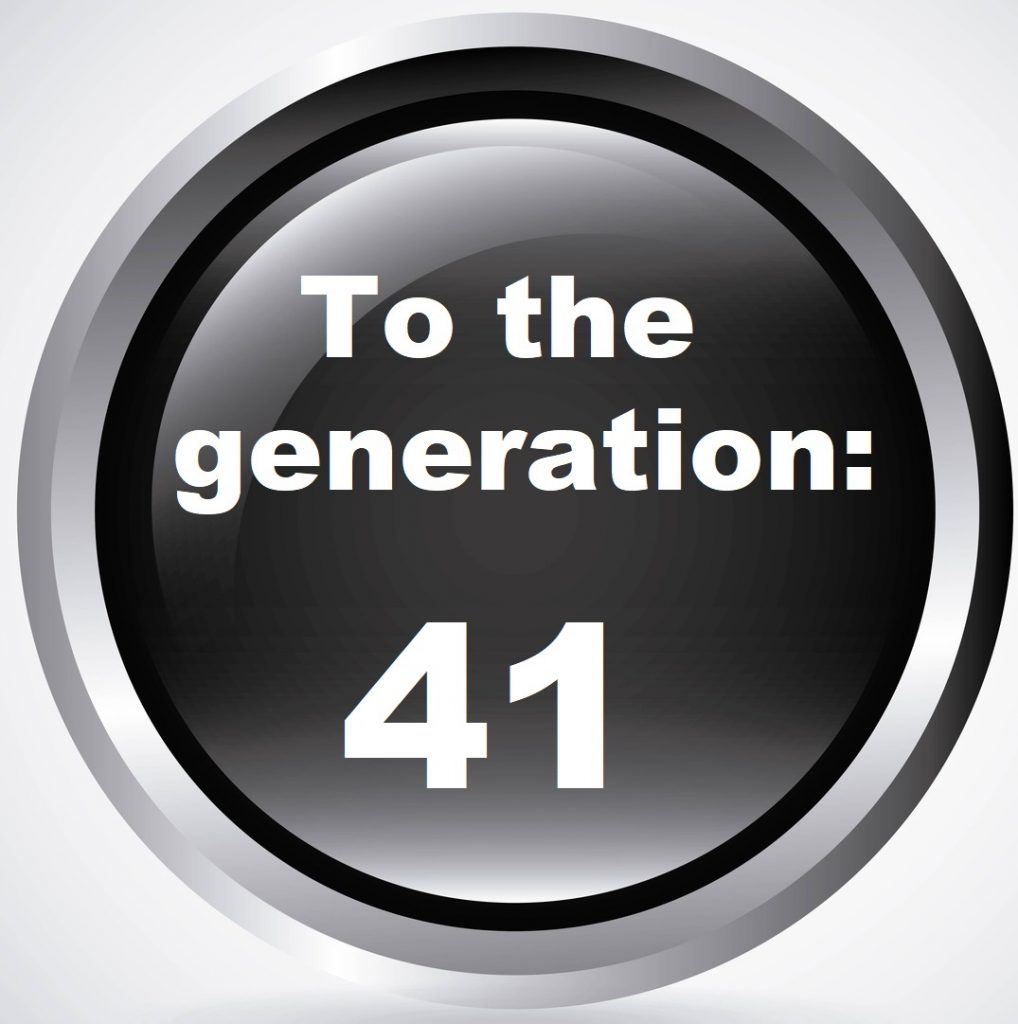
Thus the second half generation of this psalm would normally correspond to the one hundred and twentieth generation of the night. Now we know as we have said in the generations associated with Psalms 41 and 81 that the first three periods of 40 generations of the night correspond to the three fasts of Moses in the wilderness that we can recall .
Moses refers to three forty-day fasting periods to support the people of Israel with God in order to avoid their extermination because of the three faults committed:
- When the people of Israel quarrel with Refidim to obtain water (the waters of Meriba)
- When the people of Israel, led by Aaron, erects the golden calf,
- When the people of Israel were afraid to return to the promised land when the explorers returned.

The first 40-day fast corresponding to the golden calf was mentioned in Psalm 40 (corresponding to the end of the fasting of Moses linked to the golden calf). Indeed the reaction of the Maccabees to this generation puts an end to the long idolatrous wanderings of the Jews in the land of Israel which had largely marked the first generations of the night and which would lead to the destruction of the two temples of Jerusalem comparable to the two tables of the Law broken by Moses.

The second fasting of forty days, as we mentioned in Psalm 81, corresponds to the waters of Meribah and the end of the corresponding forty-day fast of Moses.
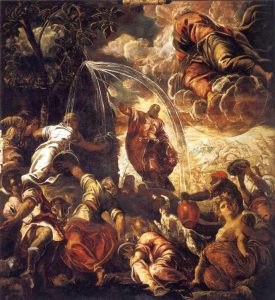
At the end of this period Moses struggling against Amalek is helped by the arrival of the Muslims in the generation 81 to avoid an omnipotence of Christianity that would have been fatal for the Jews. Muslims are braking themselves in their progress so that they can not dominate the world either.
1453, the fall of Constantinople
This period of forty generations began at the 81 generation, during which a balance in the world of the Middle Ages between Christians and Muslims allowed the Jews to survive especially in the Spanish land, ends. It is marked by the capture of Constantinople in 1453 by the Ottomans, a people converted to Islam but advocating a certain religious tolerance, this conquest will allow many Jews to find an alternative to the oppression of the Inquisition which is growing in power .
The movement of immigration is besides initiated from 1453 and not only from Spain but of the whole European Christian world in which the situation of the Jews continues to deteriorate.
The Spanish land could long be compared to the Promised Land by the Jews who lived there during periods under the Muslim or Spanish (Christian) yoke, where they were tolerated. Recall that according to some sources, Toledo has hosted some relics of Solomon’s Temple.
These « happy » times are far away, because the end of the Christian reconquest on Hispanic soil is accompanied by a more and more complete rejection of Judaism and the Jews. The following generations will confirm that there is no safe refuge for Jews outside the land of Israel. Spain is not an accident of history. The following generations will demonstrate it.
So to this generation, if the return to the land of Israel remains a wishful vow for the Jews, they are well aware that their only homeland is the land promised by God, that outside this land, they will not be able to settle definitely and permanently.
This evolution [1] is materialized by, in 1453, an action of the Jews implanted in the land of Israel who send emissaries in diaspora to push their brothers in exile to carry out their aliyah. Thus the return to Zion is well initialized from this date and it will take nearly five hundred years for this to materialize. We will see that this date of 1453 marks moreover the hinge between the middle ages and modern times what already allows to understand the meaning of this particular psalm.
So in this generation the Jewish people redeemed themselves from the faults of the desert, and as such are a mature people to return to their land, but before that many generations of exile are still to be endured with new trials even more trying than those already suffered during the early stages of exile.
Indeed, the one hundred and twentieth generation, which corresponds to the end of the third fast of Moses, corresponds in fact to the end of its support action, which corresponds to the duration of Moses’ life, a hundred and twenty years, the last thirty generations corresponding to to the mourning that the people of Israel took at the death of Moses.
Thus, the next generations will see the Jewish people fight for their survival and their return to the promised land without the equivalence of the support of Moses, which justifies the cries of Israel like those expressed during the mourning of Moses, crying this time justified by a confrontation with nations even more destructive. On many occasions, Jews will doubt, feeling abandoned by their God.
The death of Moses is distinguished from the traditional death of human beings, since it is God himself who takes him out of this world, his one hundred and twentieth year did not fully finish, which explains why the second half generation is not counted separately thus indicating the peculiarity of the death of Moses.
But since the two half-generations are not distinguished by two separate psalms, the psalm of this generation is constructed to allow us to associate each half-psalm with a half-generation. This makes it possible to count twenty years for each of them as for normal generations. So this psalm is composed of twenty-two series of eight verses. The eight verses in the same series all begin with the same letter of the Hebrew alphabet, respecting the alphabetical order: the first series uses the first letter of the alphabet, the second series uses the second letter and so on.
Thus if we divide the psalm into two half-psalms of eleven series of eight psalms, the last series of the first half-psalm uses the letter Kaf כ of numerical value 20. Which indicates to us that the half-generation associated with this half -psaume is well exceptionally attached to a period of twenty years.
Likewise, the last series of the second half-psalm uses the letter Tav ת of numerical value 400. That is twenty times twenty, also a way of indicating that the half-generation associated with this second half-psalm is also twenty years: twenty years which complete the twenty years of the first half-generation. 400 is well obtained by a combination of twenty and twenty.
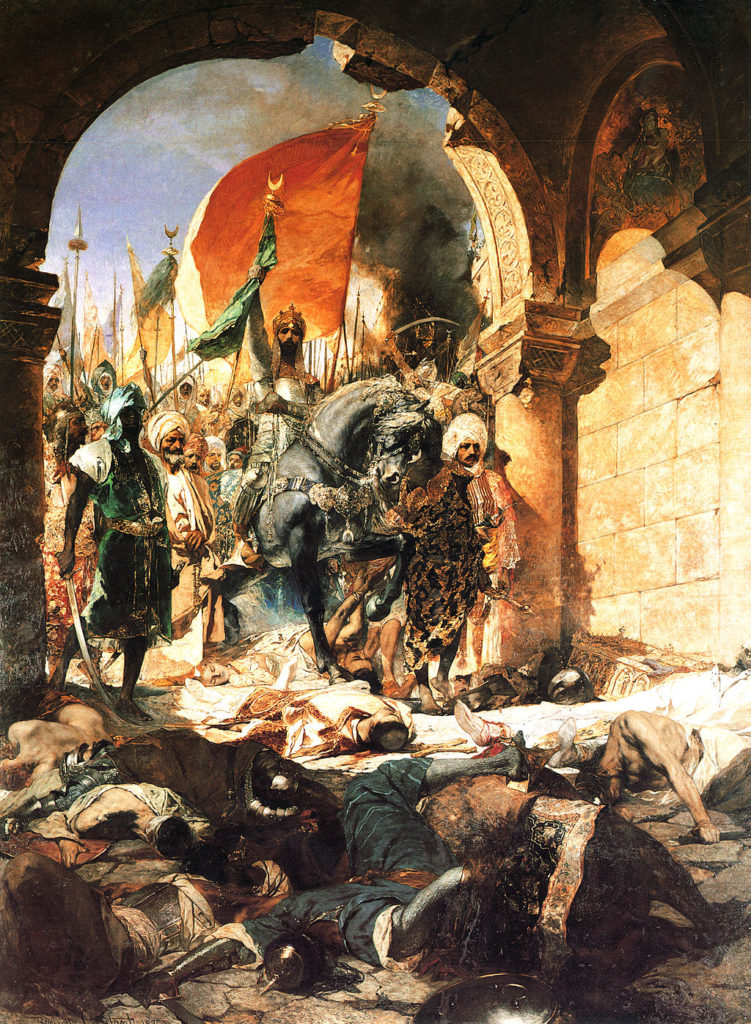
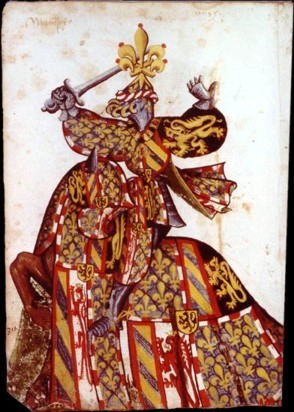

On the other hand, the key date of this psalm is 1453 which corresponds approximately to the middle of this generation, this date is the one recognized by historians as the border between the Middle Ages and the modern era:
- About [2] at the same time (other important concomitant events such as the end of the Hundred Years War are cited by the author), the history of the world is undergoing a definitive turning point. May 29, 1453, date of the fall of Constantinople, marks traditionally, the end of the Middle Ages: the city falls into the hands of the Ottomans, Greece becomes Turkish, St. Sophia Mosque, and the Roman Empire of the East disappears. Byzantium, heiress of the ancient East, Greece and Rome, had hatched the Russian civilization, it was in Byzantium that the Italians had learned the art of making cupolas and illuminating manuscripts, it is where they had learned the rules of finance, commerce and law.
- While Hellenism recoils before Islam, medieval civilization reaches its peak in Flanders and Burgundy, at the court of the great dukes of the West. They are trying to found an empire at the heart of Europe, an empire centered on the Rhone and the Rhine, a disparate whole unified by their will alone. Far more powerful than the kings of France and England, their cousins, the dukes of Burgundy maintain the greatest artists of the time, invent the etiquette of court and found the order of the Golden Fleece.
- In the Christian West, the second half of the fifteenth century is the time of renewal, economic expansion, inventions. In France, King Louis XI eliminates the last « flayers », restores the affairs of the state, rebuilds the fortune of the French, defeats the turbulence of the princes and extends the kingdom which he remade even unity at the expense of his cousin of Burgundy. […]
- But even more than political or military, the renewal is technical: the inventors of the end of the fifteenth century perfected the spinning wheel and the blast furnace, the clock and arquebuse, and, especially, the printing, which will change the world, bringing within the reach of the greatest number all the works of the spirit.
Thus after eleven centuries of existence, the Eastern Roman Empire, which declared Christianity as a state religion and which resulted in the Jews who were previously full citizens in the Roman Empire of The West are gradually becoming outcasts, dies at this generation:
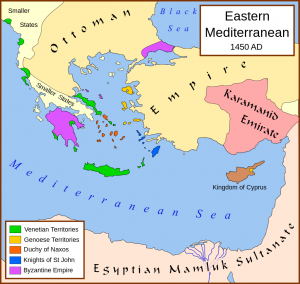
- The Eastern Roman Empire [3] was founded by Constantine the Great on Monday, May 11, 330; it ended on Tuesday, May 29, 1453. During these thousand one hundred and twenty-three years and eighteen days, eighty-eight men and women occupied the imperial throne – not counting the seven who usurped it during the Latin occupation.
If 1453 shows the end of an Empire that marked the Middle Ages, the same date or almost (1452) heralds the history to come.
Frederick III of Habsburg
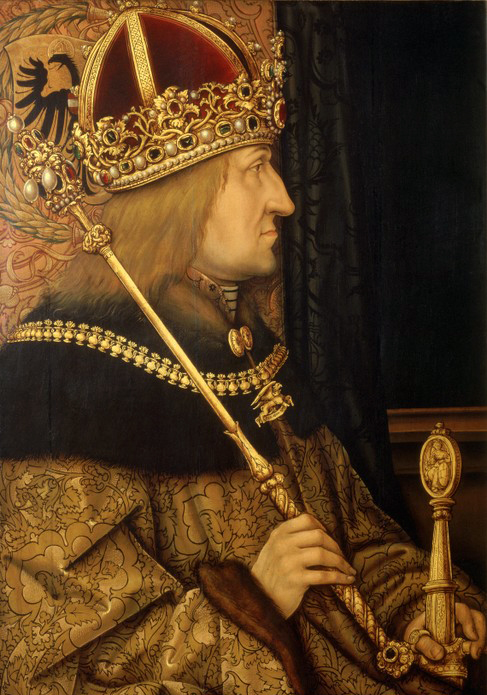
Thus as a harbinger of the twentieth-century catastrophe, the middle date of this generation is also the one that sees the last coronation of an emperor in Rome, a German emperor, who will feed the notion of universal domination of Germany at one time where this is still far from a reality:
- On March 19, 1452 [6], nobody could suspect that Frederick III of Habsburg, holder of the longest German reign of the Middle Ages (1440-1493), would be the last king of the Romans to receive his imperial crown of the pope. However, this last presence of an imperator in Rome, a year before the fall of Constantinople, already signals changes that affect the history of Germany, and more generally the evolution of the two universal powers that reunites the coronation . […]
- Let us first recall that the coronation of an emperor in Rome is one of the most important events in Christendom. This universalist and mystical dimension can not be underestimated. […]
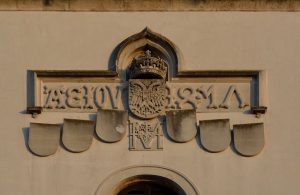
- The king then emperor ensures that the majesty and the legitimacy concentrate on the person even of Habsbourg and underline an operation of cultural and symbolic dynamisation that not only the use of the expression « domus Austriae », but also the use of the famous AEIOU motto, whose first occurrence dates from the libretto of personal notes written by Frederick III, (…) but whose Latin and German transcriptions mean: « It is up to Austria to govern the whole earth » , were never explicit during his lifetime. […]
- This reign of emperor is not that of a gravedigger of the medieval Reich who would particularize the Empire for the sole benefit of Austria. Universality remains, and will be projected on the offspring. […] Although Frederick III was the last emperor to be crowned in Rome, he was not the last to be in Italy since Charles Quint still performed the ritual in Bologna in 1530. After him, however, the royal elections and royal coronations and imperial took place in Germany, completing a movement that had begun well in 1452; the absorption of the Empire (idea more than power) by Austria, which for its part would change universes, and Europe with it.
It is also a German engineer who causes the tipping over in the modern world by giving the Turks a new weapon, the artillery that will allow their victory and that will transform the face of the wars to come.
A high risk future

The number of sovereigns of this empire was eighty-eight, exactly the number of verses of the first half-psalm of this generation (the eleven centuries of existence of the empire being also compared to the eleven parts of this empire). That makes 1450 (or 1453), the central date of this psalm that separates a world in which Christianity is rooted at the expense of a Judaism he wants to enslave but not destroy to a modern Christian world that no longer seeks to tame the Jews but simply tries to destroy them.
Thus the second half-psalm of this generation also makes eighty-eight verses.
But the catastrophe that will mark the period from 1450 to the present day is the Shoah, orchestrated by Adolph Hitler. Europe and even the world share the responsibility of this catastrophe for the Jews as well as for humanity, because it is indeed human beings who have been destroyed with the simple difference with their like another belief on the foundations of the world, the racial aspect being highly questionable (Jews and non-Jews probably having a large part of their genealogy in common). But the nostalgic of this tragedy until today use « 88 » as a code of recognition, since the « h » is the eighth letter of the Latin alphabet and the allegiance to the ex führer is formed of two words (Heil Hitler) having the « h » as the first letter. Character that many consider as the incarnation of Satan on earth.
Unfortunately we have already seen in past generations how one man could lead to chaos especially for the Jews.
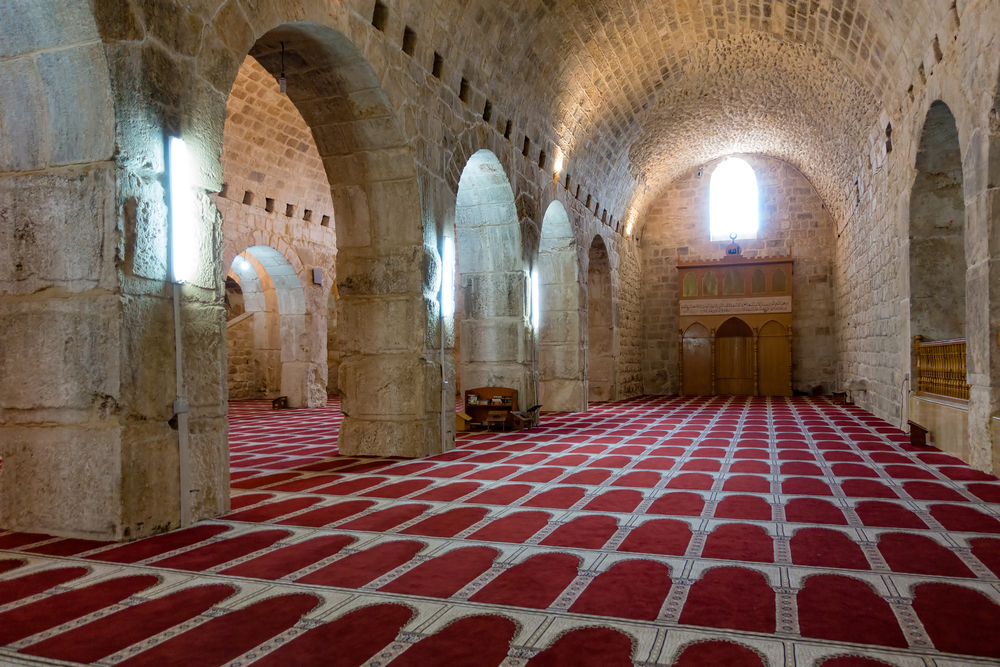
So from this comparison, we find another meaning to this number 88:
- (On the hill of the Temple, the Stables of King Solomon) formed [4] one of the military centers of the Crusaders: their 88 square pillars in twelve rows support powerful vaults. At the southeastern corner of the rampart against which they are built, is the cradle of Jesus. According to tradition, Mary laid the child Jesus on this stone when she was going to do her devotions at the Temple.
- Above Solomon’s Stables, stands the pinnacle where Satan tempted Jesus (Gospels according to Luke 4.9). As the only place of intersection of the eternal uncreated and the creation in the eyes of the Hebrews, a spiritual center of world importance, Temple Hill has not revealed all its secrets.
The stables of King Solomon represents the failure by the latter to the requirements of Deuteronomy [5] for the kings and especially not to multiply horses. By not respecting these prescriptions, Solomon has allowed the bursting of the kingdom of Israel which will lead to the destruction of the two temples and to the dispersion of the Jewish people who will suffer from the second part of this generation the insidious attack of the forces evil in the image of Satan’s temptation to Jesus above these stables supported by 88 pillars.
It is notable that the first status of « purity of the blood » was adopted in Toledo, Spain in 1449, just before the beginning of this « modern » period. This « purity of blood » will be officially adopted about a century later in Spain against the « conversos » and will mark all the generations of modern times with obviously a culmination during the Shoah.
Thus the central date of this psalm, if it is the date between the Middle Ages and Renaissance and modern times, is also for Jews the date that separates the two phases of exile.
The first, before this date, where under the equivalent of the protection of Moses, the Jewish people is subjected to many bullying or even massacres but without ever a real will of the authorities to destroy the Jewish people, the massacres being often orchestrated by a part of the people furious not respecting the instructions of the power, political or religious.
The second, after this date, without the equivalence of the protection of Moses, the Jewish people will this time be confronted with powers, religious or political, which will seek its extermination, which explains that the generations that follow are comparable to the thirty days of mourning that the Jewish people respects in the desert after the death of Moses. Indeed, the generations that follow, if they will eventually open the doors of the promised land, will be associated with unprecedented abuses by nations for the people of Israel.
The third series of forty generations that ended this generation had begun the generation of eighty-one who had seen the first defeat of the Muslims against Constantinople who then signed the limits of Muslim expansion.
At the time, this cessation of Muslim expansion was beneficial to the equilibrium of the world within its limits at that time, namely the Mediterranean, the Orient of Antiquity and the areas attached to it. Thus in 672, took place a new episode of the fight between Byzantium and the Muslim armies which for the first time turned to the advantage of Byzantium, the first decade of the reign of Constantine IV was marked by a reversal in the history of the Christendom: For the first time, the armies of the Crescent were repulsed and put to flight by those of the Cross.
Future wars
If the Byzantines had benefited from the advantage of a new weapon (Greek fire) to repel the attack of the Muslims, at the end of these forty generations of resistance, it is a new weapon, quoted Ottoman this time, which contributes to their defeat:
- But [7] it was something else that he (Muhammad, the new Turkish sultan fighting Constantinople) was the most proud. The previous year, a German engineer, Orban, had offered to build a bronze cannon that would explode even the walls of Babylon. Mahomet paid well, and three months later, he was rewarded with the terrifying weapon that had sunk the boat of Rizzo (Captain of a Venetian boat that tried to force you the blockade imposed by the Turks in 1451). He ordered another, twice as big as the first, which was finished in January 1453. It is said that he measured in the eight meters, that the bronze was twenty centimeters thick and that the soul was almost eighty. centimeters in diameter. He could shoot a six hundred and fifty kilogram ball at nearly two kilometers. Two hundred men were sent to organize the transport of this formidable machine to Constantinople; they cleared the roads and reinforced the bridges. Then thirty pairs of oxen pulled her, while two hundred men ensured her stability. […]
- On the 11th of April (1453), the bombardments recommenced, continuing without interruption for forty-eight days. If the big gun could fire only every two or three hours, the damage it caused on every blow was enormous; in a week, the outer wall that crossed the Lykos had collapsed in several places, and although its defenders worked tirelessly to repair the damage, they could not continue indefinitely.
The new Turkish weapon is only the prelude to new weapons that will largely change the wars of generations to come.
Towards a Europe of Nations
The taking of Constantinople is accompanied by other milestones in the birth of the Europe of Nations which will dominate the world for centuries to come.
The middle period of this generation is thus marked in 1453 by the official end of the Hundred Years War which has the effect of the birth of the two nation states France and England which will largely influence the world history of the next centuries.
The bursting of the Burgundian principality allowed the consolidation of the French kingdom and the birth of the Netherlands as a nation.
The fall of Constantinople also allows Russia to emancipate itself from religious tutelage and to become one of the emerging nations of this century.
The Renaissance
The progress of science is not only military since almost simultaneously with the fall of Constantinople the first books (about 1455) come out of the first printing house developed by Gutenberg. This invention will be decisive in the propagation of culture and science in the coming decades and will strongly accompany the Renaissance movement.
The middle of the fifteenth century also saw a new equilibrium in Italy, through the signature of the « lega italica » in 1454. This fragile peace allows the Italian states to enter modernity by developing the Renaissance, mainly in Florence, as much in the arts than in architecture, as well as in politics and humanism. The benefits of this revival will soon be exported, especially in France, when it will undertake at the end of the century its actions of conquest in Italy.
The reconstruction of Judaism in Spain
For Jews, this date sets some fundamental changes for their future in Europe. Thus even their new refuge in Europe, which was nascent Poland, hardened its relations with the Jews.
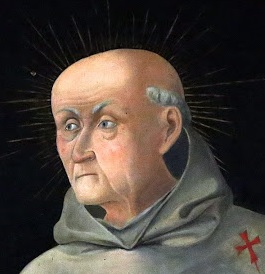
As the modern world takes shape, this generation is a short respite for the Jewish people. Although many abuses, such as that orchestrated by Capistran in Poland, are to deplore a new faith, but their main effect will be more on generations to come than on the present generation.
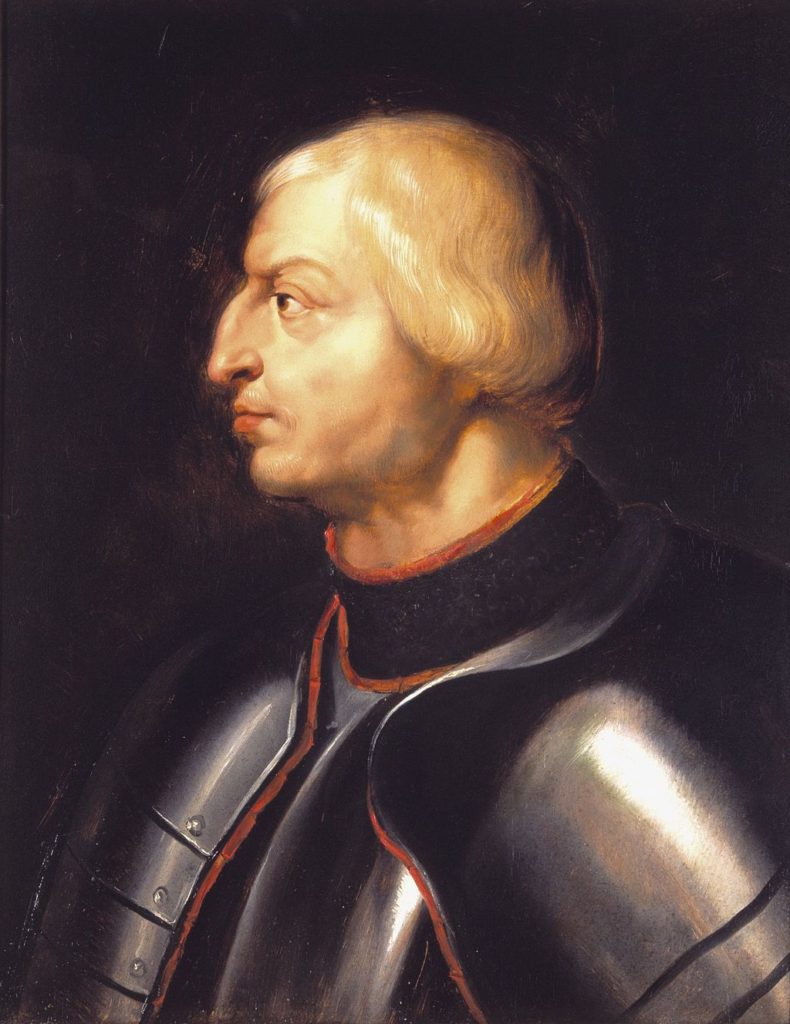
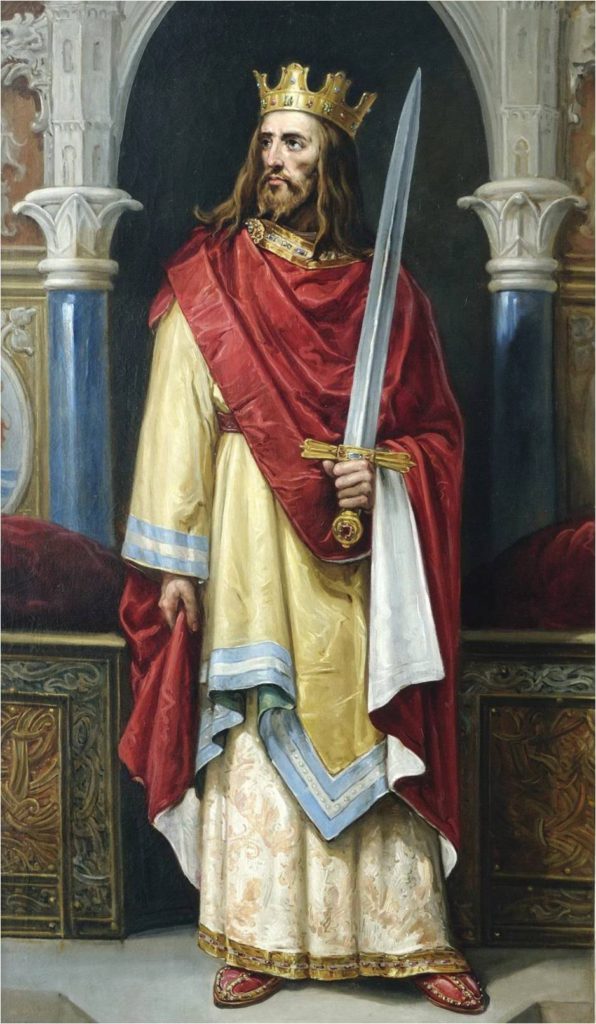
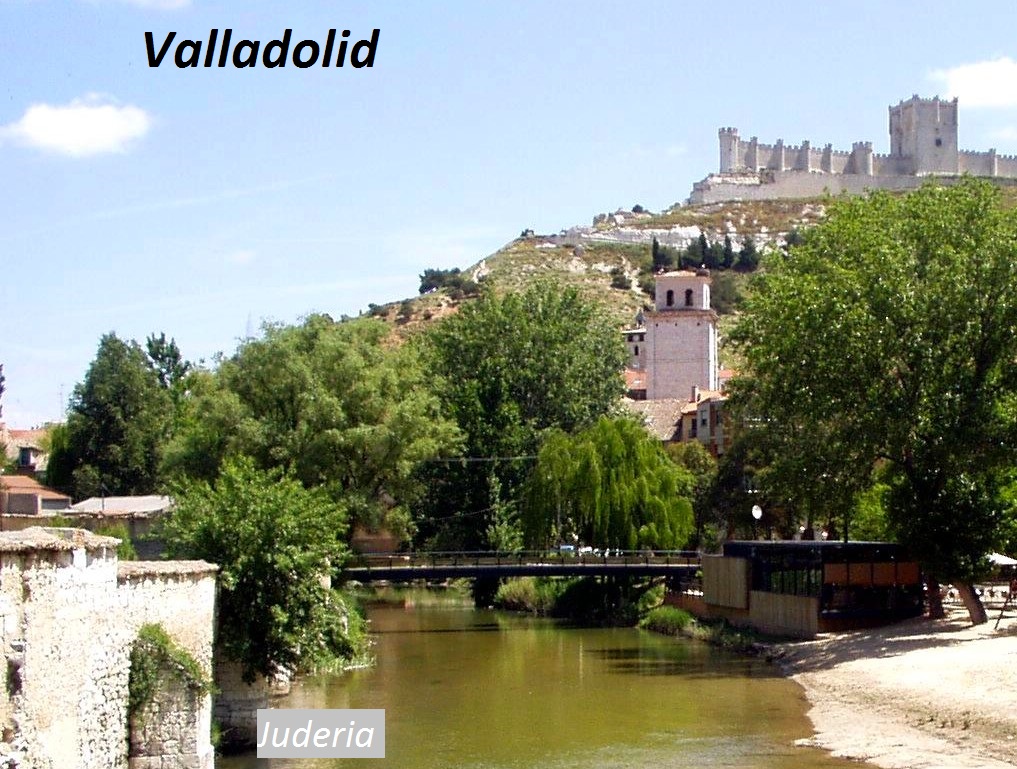
In Spain, in particular, while the worst is getting ready, with first signs in Toledo in 1449 when riots are targeted at Jews and conversos, Jewish communities are rebuilding themselves:
- The rebuilding [8] of communities after the riots of 1391 took a lot of effort and many years. Some cities that had sheltered prosperous communities, such as Barcelona, Mallorca, Valencia, had been emptied of their Jews forever. In the fifteenth century, John II (1405-1454) reigned in Castile and Alfonso V (1416-1458) in Aragon. Both were more concerned with secular culture than with religious fanaticism. Between 1419 and 1422, decrees issued by these kings and by Pope Martin V annulled the various measures that had been taken against the Jews. The books and synagogues that had been confiscated were returned to them and life gradually returned to normal.
- Don Abraham Benveniste, Rabbi of the Court, judge and tax collector of all communities, worked extensively to restore Jewish studies in Castile.
- In 1432, he summoned to Valladolid, a royal city, the leaders of the communities of Castile. Together, they promulgated various decrees aimed at restoring the communities destroyed during the riots of 1391. The first decisions concerned education and aimed at the reconstruction of institutions in this area. Different taxes for this purpose were fixed. Any community with at least fifteen families had to hire a teacher (« melamed ») worthy of the name. From forty families, the community had to have a master (« marbit torah », rabbi and yeshiva director) who could teach the Talmud, the rules of Halakha and the agadot. The community had to pay for it through taxes and income from land it managed. They decided: « Each of these Sages will have at his disposal a fixed yeshiva, in which he will be able to study with anyone wishing to listen to questions of Halakha. » Their enterprise was successful and many yeshivot were created in towns and villages in Spain. These institutions continued until the expulsion from Spain in 1492. The leaders of these yeshivot and their pupils continued their activity relentlessly in all the countries where the Jews took refuge. Rabi Joseph Yabetz, a contemporary of the expulsion and bitter criticism of philosophy and his bad influence on Spanish Judaism, bears witness to the number of yeshivot at the time: « In the past, Spain was not full of yeshivot and students as at the moment of expulsion. » Other sources mention the existence of at least thirteen large yeshivot for Castile alone at the time of the expulsion. At that time, students flocked from neighboring countries, from Morocco and Algeria to study there; they therefore provided shelter and lodging for many foreigners.
Iberian Jews armed for exile
In fact the previous events in Spain which resulted in the appearance of Marranism are also an opportunity for the Jewish people to redefine itself around the Mosaic law. This refocusing that has already allowed Jews to cross centuries in exile will be the essential reason for survival in future generations where the danger of disappearing has never been greater.
In particular, the Jews who will take the road of a new exile from 1492 will seed durably the European and Mediterranean Judaism allowing him to continue until the return to Zion. This is why this psalm insists in almost every verse on the salvation of the Jewish people associated with the observance of the law of Moses, though this psalm marks the end of the beneficial influence of Moses over his people.
The curses suffered by the Jewish people were planned by Moses. The latter in his testament, however, indicated that the salvation of the Jewish people will be assured in the long run, because after being removed from God, the Jewish people will end up respecting the covenant and will thus find divine favors.
The psalm of this generation thus gives a large place to this law, object of the covenant and source of the future salvation of the Jewish people, thus echoing the testament of Moses. Virtually no verse of this psalm forgets to mention this one, whether (based on the translation used): Your statutes, Your commandments, Your precepts, Your ways, Your testimonies, Your Torah, Your Word, (Your) judgments, instruction (of Your mouth), Your faith, the law of the Lord.
In the first part of the psalm, for the verses associated with the letter aleph (1-8), the psalmist reaffirms both the merits of the divine commandments and concludes both the Jewish people’s adherence to these commandments and the hope of the latter in divine protection.
As the last verse of this section indicates:

- I shall keep Your statutes; do not forsake me utterly.
In the following part of the psalm, the verses associated with the letter beth (9-16), the psalmist continues to reaffirm the righteousness of the commandments and concludes similarly to the previous part:

- With Your statutes I shall occupy myself; I shall not forget Your speech.
After these reminders, the psalmist is repositioned in the historical context, so the verses associated with the letter Gimel, the third part (17 to 24) of the psalm re-engages directly on the need for divine intervention (verse 17):

- Bestow kindness upon Your servant; I shall live and I shall keep Your word.
If the praise of the law does not fail to be made in this part, the pariah condition of the Jew is evoked on four verses of this part:
(extract of the psalm 119 associated to this generation, first part of verse 19 )
- I am a stranger in the land; …
(extract of the psalm 119 associated to this generation, first part of verse 21 )
- You shall rebuke cursed willful sinners …
(extract of the psalm 119 associated to this generation, first part of verse 22 )
- Remove from me disgrace and contempt, …
(extract of the psalm 119 associated to this generation, first part of verse 23 )
- Although princes sat and talked about me, …
The fourth part of the psalm, the one associated with the Dalet letter (verses 25 to 32), makes it possible to go from the observation to the complaint. The psalmist thus evokes more openly the painfulness of this position of pariah suffered by the Jewish people until then:

(extract of the psalm 119 associated to this generation, first part of verse 25 )
- My soul clung to the dust; …
(extract of the psalm 119 associated to this generation, first part of verse 28 )
- My soul drips from grief;
The psalmist recalling once again the faith in God, not without some worries:
(extract of the psalm 119 associated to this generation, second part of verse 25 )
- … revive me according to Your word.
(extract of the psalm 119 associated to this generation, second part of verse 28 )
- … sustain me according to Your word.
(extract of the psalm 119 associated to this generation, first part of verse 29 )
- Remove from me the way of falsehood, …
(extract of the psalm 119 associated to this generation, second part of verse 31 )
- … Remove from me the way of falsehood,
The following passage associated with the letter He (verses 33-40) should reaffirm the adherence of the people of Israel to the covenant despite the situation described in the previous passage while again recalling hope in the final salvation:

- Fulfill for Your servant Your word that is for Your fear.
- Remove my disgrace, which I feared, for Your judgments are good.
If the passage on the letter Vav (verses 41-48) reiterates once again the attachment to the law and the commandments, the following passage relating to the letter Zayin (verses 49-56) recalls that the covenant remains well the only consolation of the Jewish people throughout this long night, which began with the death of Solomon and which has become increasingly dark since the exile of the Jewish people:

- Remember a word to Your servant, through which You gave me hope.
- This is my consolation in my affliction, for Your word has sustained me.
- Willful sinners derided me greatly; I did not turn away from Your Torah.
- I remembered Your judgments of old, O Lord, and I was consoled.
- Quaking gripped me because of the wicked men who abandoned Your Torah.
- Your statutes were to me as songs in the house of my sojournings.
- At night I remembered Your name, O Lord, and I kept Your Torah.
- This came to me because I kept Your precepts.
This passage is confirmed and summarized in the following passage relating to the letter Hèt (verses 57-64). This is what is done in verses 61 and 62 indicating that the night is unfortunately not yet over at this generation:

- Bands of wicked men robbed me; I did not forget Your Torah.
- At midnight, I rise to give thanks to You for Your just judgments.
The next part of the psalm, the one associated with the Tet character (65 to 72), makes a fairly realistic assessment of the past period. But the psalmist does not complain and considers as an advantage, in the knowledge of the divine, the disappointments suffered:

- Before I recited, I erred, but now I keep Your word.
- Willful sinners have heaped false accusations upon me, but I keep your precepts wholeheartedly.
- Thick like fat is their heart, but I engage in Your Torah.
- It is good for me that I was afflicted, in order that I learn Your statutes.
The following passage, which is associated with the letter Yod (verses 73-80), allows the psalmist before concluding the first part of this psalm to further praise the law and divine protection as summarized in verse 77:

- May Your mercy come upon me so that I shall live, for Your Torah is my occupation
The psalmist concludes this first part of the passage with the passage associated with the letter Kaf (verses 81-88).
The psalmist can only make a black balance of the period already spent the night and can only worry about the last part of it that will begin. The use of the terms consumer and annihilate (almost) reflect the generations of the night already passed, while the plea « preserve me life » sums up the generations to come:

- My soul pines for Your salvation; for Your word I hope.
- My eyes pine for Your word, saying, « When will You console me? »
- For I have become like a wineskin in smoke; I have not forgotten Your statutes.
- How many are Your servant’s days? When will You execute judgments upon my pursuers?
- Willful sinners have dug pits for me, which is not according to Your Torah.
- All Your commandments are faithful; they pursued me in vain; help me.
- They almost destroyed me on earth, but I did not forsake Your precepts.
- According to Your kindness, sustain me, and I shall keep the testimony of Your mouth.
After this realistic observation, the psalmist approaches the second half-generation.
This begins with the part associated with the letter Lamed (verses 89-96). This first passage summarizes the generations passed by the following verse:

- Were not Your Torah my occupation, then I would have perished in my affliction.
Once this recall is made, the psalmist turns to the dangers to come by the following verse:
- Concerning me: the wicked hoped to destroy me; I shall ponder Your testimonies.
After a further reminder of the blessing of the Divine Commandments and thus the attachment to the divine covenant of the people of Israel made in the next part of the Psalm associated with the letter Mem (verses 97-104), the psalmist recalls the dangers (very real) that threaten the Jewish people on the generations that will follow and that will close the night. Thus in the following part associated with the letter Nun (verses 105-112):

- I have been exceedingly humbled; O Lord, sustain me according to Your word.
- My soul is constantly in my hand, and I have not forgotten Your Torah.
- The wicked laid a snare for me, but I did not stray from Your precepts.
In the two following sections associated with the letters Samech (verses 113-120) and Haïn (121-128), the psalmist seeks divine support for future generations in the face of the announced misfortunes:

- Support me as Your word, and I shall live, and do not put me to shame because of my hope.
- I performed justice and righteousness; do not leave me to my oppressors.
The following part, associated with the letter Pe (verses 129-136), while continuing to praise the commandments, reiterates the psalmist’s request to come out of the night:

- Redeem me from the oppression of man, and I shall keep Your precepts.
- Rivulets of water ran down from my eyes because they did not keep Your Torah.
The psalmist continues in the next part associated with the letter Tsadé (verses 137 to 144) on the condition of pariah which is worsening for the Jewish people in the generations to come:

- I am young and despised; …
- Distress and anguish have overtaken me; …
In the continuation of the Psalm, the part associated with the letter Kof (verses 145 to 152), the psalmist evokes what represents this half-generation that begins, a hope towards the final deliverance (I arose early: the dawn) but with the anxiety of the night (the watches: of the night) to pass before this one, the part of the night remaining to pass not being the least painful:

- I called with all my heart; answer me, O Lord; I shall keep Your statutes.
- I called to You; save me and I shall keep Your testimonies.
- I arose early, when it was still night, and I cried out; I hoped for Your word.
- My eyes preceded the watches to speak of Your word.
- Hearken to my voice according to Your kindness; O Lord, according to Your custom sustain me.
- Pursuers of lewdness have drawn near; from Your Torah they have distanced themselves.
The next part of the psalm, the one associated with the letter Resh (verses 153-160) allows us to make an assessment again of the situation of the Jewish people in exile. It also evokes those who have abandoned the ranks of the Israelite people come to join their enemy as was already the case especially for Pablo Santa Maria (ex Salomon Ha Levi) and harder for Geronimo Santa Fe (ex Joshua Ha Lorki ) others will follow like Torquemada:

- See my affliction and release me, …
- Many are my pursuers and my adversaries, …
- I saw traitors and I quarreled [with them] …
Despite the difficult road (« Princes pursued me for nothing« / « I went astray like a lost lamb« ), the psalmist in the name of the people of Israel does not give up the alliance whatever the price it is which are expressed in the last two parts of the psalm, those associated with the letter Shin (verses 161 to 168) and the letter Tav (verses 169 to 176):

- Princes pursued me for nothing, but my heart feared Your word.
- I rejoice over Your word as one who finds great spoil.
- I hate falsehood, and I abominate [it], I love Your Torah.
- Seven times a day I praise You for Your righteous judgments.
- There is abundant peace to those who love Your Torah, and they have no obstacle.
- I hoped for Your salvation, O Lord, and I performed Your commandments.
- My soul kept Your testimonies, and I love them exceedingly.
- I kept Your precepts and Your testimonies, for all my ways are before You.
- May my song of prayer draw near before You, O Lord; according to Your word, enable me to understand.
- May my supplication come before You; according to Your word, save me.
- My lips will utter praise when You teach me Your statutes.
- My tongue will proclaim Your word, for all Your commandments are righteous.
- May Your hand be [ready] to help me, for I have chosen Your precepts.
- I yearned for Your salvation, O Lord, and Your Torah is my occupation
- May my soul live and praise You, and may Your judgments help me.
- I went astray like a lost lamb; seek Your servant, for I did not forget Your commandments.
This psalm, which marks the transition from the period of the night that has already elapsed to that which accompanies the march of the world towards the modern world, is an opportunity for the Psalmist, on behalf of the people of Israel, to reiterate the his attachment to the divine covenant and the law entrusted to him on Mount Sinai.
However this attachment comes to fill the long wandering of the Jewish people who at first had moved away attracting the night on him and the destruction. The Jewish people have returned to the alliance in the hope of curbing it but the road is still long and the destruction is not over even if it will be neither total nor final.

[1] According to www.histoiredesjuifs.com, « chronology » section.
[2] (preface by) Georges Duby: « A history of the medieval world ». Third part: « Old empires and young nations (XIV-XV centuries) – Introduction ». (French: « Une histoire du monde médiéval ». Troisième partie : « Vieux empires et jeunes nations (XIV-XVe siècles) – Introduction ». (p. 325-326) ).
[3] John Julius Norwich: « History of Byzantium ». Chapter: « Epilogue ». (French: « Histoire de Byzance ». Chapitre : « Épilogue ». (p. 433) )
[4] André Chouraqui: « Jerusalem, a sanctuary city ». Chapter: « Under the sign of the crescent ». (French: « Jérusalem, une ville sanctuaire ». Chapitre : « Sous le signe du croissant ». (p. 184) )
[5] See Deuteronomy Chapter 17, verses 16-20
[6] (supervised by) Patrick Boucheron: « History of the world in the fifteenth century ». Chapter of Pierre Monnet: « The Last Coronation of an Emperor in Rome » (French: « Histoire du monde au XVe siècle ». Chapitre de Pierre Monnet: « Le dernier couronnement d’un empereur à Rome» (p. 363 à 366) ).
[7] John Julius Norwich: « History of Byzantium ». Chapter 29: « The Fall » (French: « Histoire de Byzance ». Chapitre 29 : « La chute » (p. 424 et 426) ).
[8] (led by) Shmuel Trigano: « The Sephardic world, II – Civilization ». Chapter of Moshe Amar: « The yeshiva in the east ». (French: « Le monde sépharade, II – Civilisation ». Chapitre de Moshe Amar: « La yeshiva en orient ». (p. 278-279) ).


